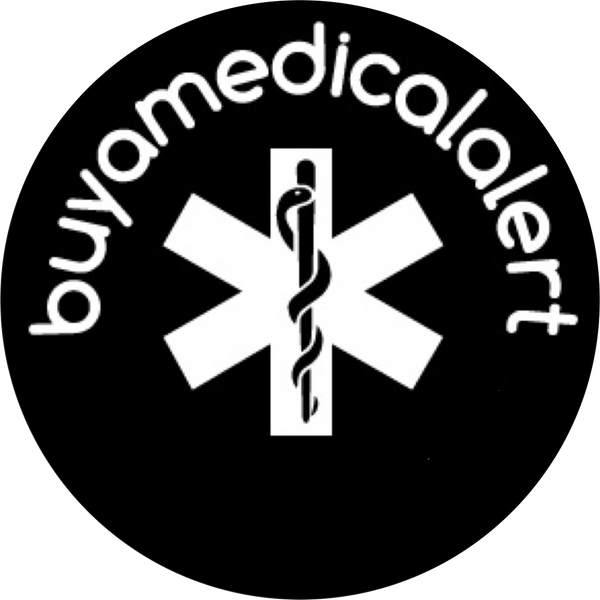Who needs to wear a medical alert ID?
According to recent research 1 in 3 of us should be wearing medical alert identification
Sounds staggering doesn't it?
But when you think about it maybe it’s not all that surprising. Asthma UK state a 12% prevalence in the UK, NHS figures for 2017 show an 8.7% prevalence of diabetes and both numbers are rising. Allergy UK note:
'44% of British adults now suffer from at least one allergy and the number of sufferers is on the rise, growing by around 2 million between 2008 and 2009 alone. Almost half (48%) of sufferers have more than one allergy' (Mintel, 2010)
They go on to say:
The list below certainly isn't comprehensive, but it will certainly give you a few clues. If you suffer from any of the conditions noted medical ID is certainly worth considering.'In the 20 years to 2012 there was a 615% increase in the rate of hospital admissions for anaphylaxis in the UK' (Turner, Paul J., et al, 2015)
- Anaemia
- Asthma/COPD
- Alzheimer's
- Autism
- Blood Disorders
- Blood Thinners (Warfarin)
- Cardiac Problems
- Crohns Disease
- Diabetes
- Dementia
- Emphysema
- Epilepsy
- Epi-pen carriers
- Gluten Allergy
- Heart Conditions
- Hypertension
- Insulin Dependant
- Kidney Failure
- Latex Allergy
- Morphine Allergy
- Multiple Sclerosis
- Narcolepsy
- Pacemaker
- Peanut Allergy
- Penicillin Allergy
- Seizures
- Shellfish Allergy
- Steroid Medication
- Stroke Risk
- Surgery, transplant and cancer patients
- Rare blood types
- Rare medical conditions
How does wearing a medical alert bracelet help me?
Quite simply IT COULD SAVE YOUR LIFE
In the UK and all over the world medical alert bracelets do just that EVERY DAY.
If you are in an accident, alone and unconscious the only way you can communicate a medical condition, illness or allergy to medics is with medical alert jewellery. Valuable time can be lost if they are unaware of the possible cause of your state or how any care they administer may adversely affect you.
Medical professionals, paramedics and first responders are trained to look for this life saving information. Help them out by making sure at the very least you have your condition on your tag.
Many people don’t wear a medical alert because they find them unattractive or drawing unnecessary attention to something personal that you might not want to share with everyone (Shelley is a case in point!). The ethos of this range is to make it a little more comfortable to wear a bracelet by introducing an element of style, but the primary role will always be to SAVE YOUR LIFE.
Or, on the basis narcoleptics across the world have been incorrectly given seizure medications, thought to be intoxicated with alcohol or illegal substances, suffered fractured ribs and punctured lungs whilst unnecessarily being given CPR, just ask me next time we meet.
(I might even tell you about the two occasions I have ended up in the back of a police car. Both instances could have been avoided if basic information about my somewhat unusual condition had been a bit closer to hand!)
SHELLEY THOMAS
